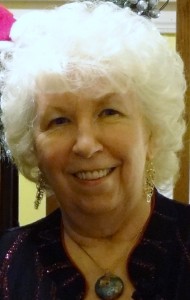Midwives are back in the news in Nova Scotia. Whenever that happens, we can assume there is something that’s not going smoothly in the world of midwifery.
In the nursing community, we always knew that one of the reasons midwifery could not gain a solid foothold as part of the health care solution was that the medical establishment was not willing to share its power. The reason we don’t enjoy widespread use of nurse practictioners is a symptom of the same power struggle.
This is a column I wrote about midwives and midwifery which was published on October 14, 1990. I have edited it only to remove an event that was held the weekend this appeared.
Childbirth, just taken on its own, not knowing anything about the circumstances of mother or baby, is one of the most earth-shaking experiences to watch. You notice I say “watch.” I have never given birth (my son is adopted) but during my nursing career, I observed many births – dozens, I suppose, or maybe scores. Each one had such a profound effect on me that, to this day, I can be brought to tears when Sondra Huxtable (the oldest of The Cosby Show daughters) gives birth to twins in a situation comedy.
I trained at the Montreal General Hospital but each year, a couple of General students, did the obstetrics/gynaecological affiliation at the Women’s Pavilion of the Royal Victoria Hospital. I was one of them. There were many, many babies born there every day.

(The Royal Victoria Hospital, Montreal)
It seems hard to believe but at that time (it was only the ’60s) second year students were left alone to work on the post-partum wards. We were always told that if we needed help, we should run down the hall to the delivery rooms where the nurses in charge would be glad to help us out. The delivery room nurses, as far as I can remember, were all from Great Britain, all trained as midwives, all answerable to all levels of the medical hierarchy, none allowed to deliver babies on her own.
One night, alone on our ward, I looked in on Mrs. X who had been admitted because of her age (40-something) but had not yet delivered. Mrs. X was expecting her ninth baby. It was around two in the morning and she told me she was in labour and I should be ready to call the doctor and get her down the hall. I called the nursing supervisor.
Minutes later the supervisor called me back and told me she had spoken to the doctor (an intern, on call that night) and he said there was no possible way Mrs. X could be in labour – he had seen her a couple of hours before – and I was to give her half a grain of codeine for her pain. Well, I might have been only a second year student but it didn’t sound right to me and I refused to do it – on solid ground, since technically, I wasn’t allowed to administer a drug unless the doctor came to the floor and put it in writing.
So the supervisor came down and gave Mrs. X the codeine. Within minutes, Mrs. X called me and told me the baby was coming. I learned many useful things as a nurse, perhaps none of them more useful or certain than this: when a mother – particularly one who has already delivered eight times – says the baby is coming, the chances are pretty good that the baby is coming.
I did almost nothing. I prepared a sterile field for the arrival, put on some sterile gloves and waited a minute. When the little baby appeared – small and premature – I put him on his mother’s tummy and ran like hell to the delivery room to get a midwife. She came, delivered the placenta, hustled off with mother and child and left me with shaky knees to deal with the paperwork, cleaning up, explaining to doctors etc.
A few weeks later, when I had finished my ward work and moved on to the premature nursery, one of my first tiny patients was Baby X. In his admission notes, I read, “Admitted on the night of … suffering from acute codeine intoxication.” (Babies get their intravenous fluid through the veins in their forehead and so his little head had been shaved except for a fringe around his ears. The permanent nursery staff called him Friar Tuck.)
I thought of that little baby a lot over the next several years – and his dear experienced mother, who knew her baby was coming, knew what had to be done, tried to reject the offer of codeine for her pain. I thought of the delivery room nurses, who knew so much more about pregnancy, labour and delivery than the medical students and interns who were entrusted with these important responsibilities, the nurse/midwives who felt such anger and frustration when they ran up against a case like little Friar Tuck.
It’s interesting that every time a midwife-attended birth doesn’t go as planned, you can read about it in every newspaper, hear about it on every newscast, see it taken to court. But when inexperienced interns and medical students put a new baby and its mother at risk, it’s simply seen as part of the education process. When busy obstetricians choose to do Caesarean Sections for their own convenience, it’s just another case of doctor-knows-best.
I’ll be watching the mid-wife and mid-wifery issues here and will keep you posted.


